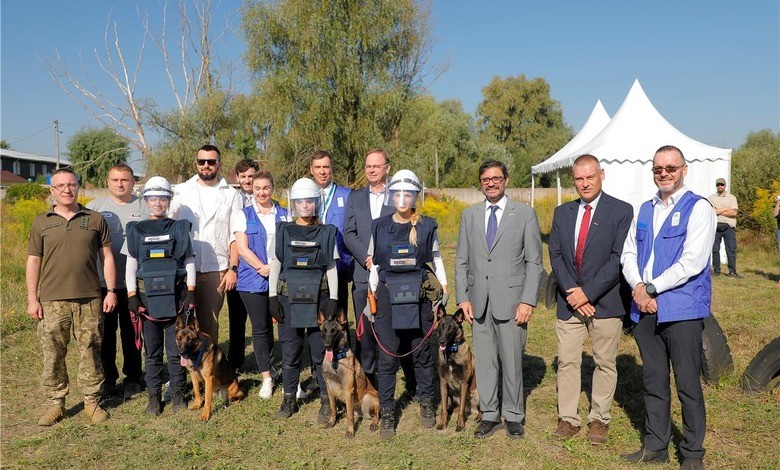Ukrainian female dog handlers begin demining dangerous fields

As part of expanding national demining efforts, a new project has been introduced in Ukraine that combines innovative methods and gender equality. Eight female dog trainers together with 16 service dogs are ready to participate in the clearing of Ukrainian fields from mines in the Kharkiv region. This was made possible by reforming approaches to demining using dogs and creating appropriate national standards. About this informs Ministry of Economy of Ukraine.
Newly trained specialists are graduates of the Sumy Agrarian National University, who specialize in canine science. To improve their skills, they underwent an additional three-month training in Cambodia, where they gained practical experience with their partner dogs.
A feature of this project is the ability of dogs to work in different climatic conditions: they are effective even at temperatures above 5°C, which allows you to use their services in autumn and winter. In the summer, these four-legged specialists withstand working conditions up to 35°C, which makes them universal assistants in the fight against mine danger.
According to the Ministry, dogs can survey up to 1,500 square meters of territory per day, significantly exceeding the efficiency of human sappers, who are able to process only 20-50 square meters. These dogs specialize in detecting explosives, which makes them indispensable in fields where there are mines and strafing lines.
The project has not only an operational significance, but also a gender dimension: it promotes the involvement of women in mine action, demonstrating support for gender equality in Ukraine. As the Ambassador of Spain to Ukraine Ricardo López-Aranda Hagu noted during the presentation of the project, this initiative is an important step in the professional growth of women and expanding their opportunities in the field of demining. In the coming months, these groups of canines and dogs will be involved in cleaning 180 hectares of land in the Kharkiv region, and later they will continue their work in the Kherson and Mykolaiv regions.





